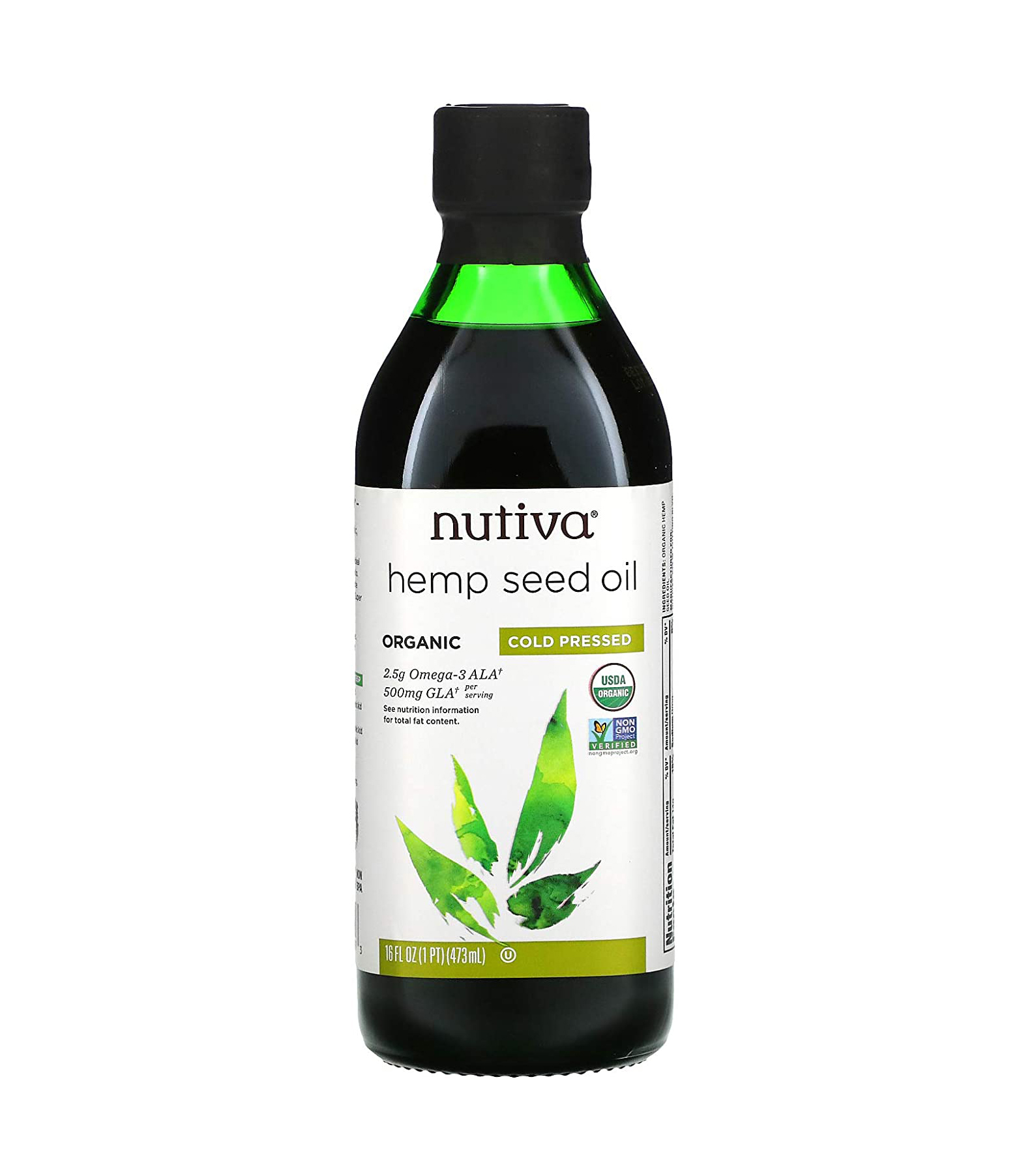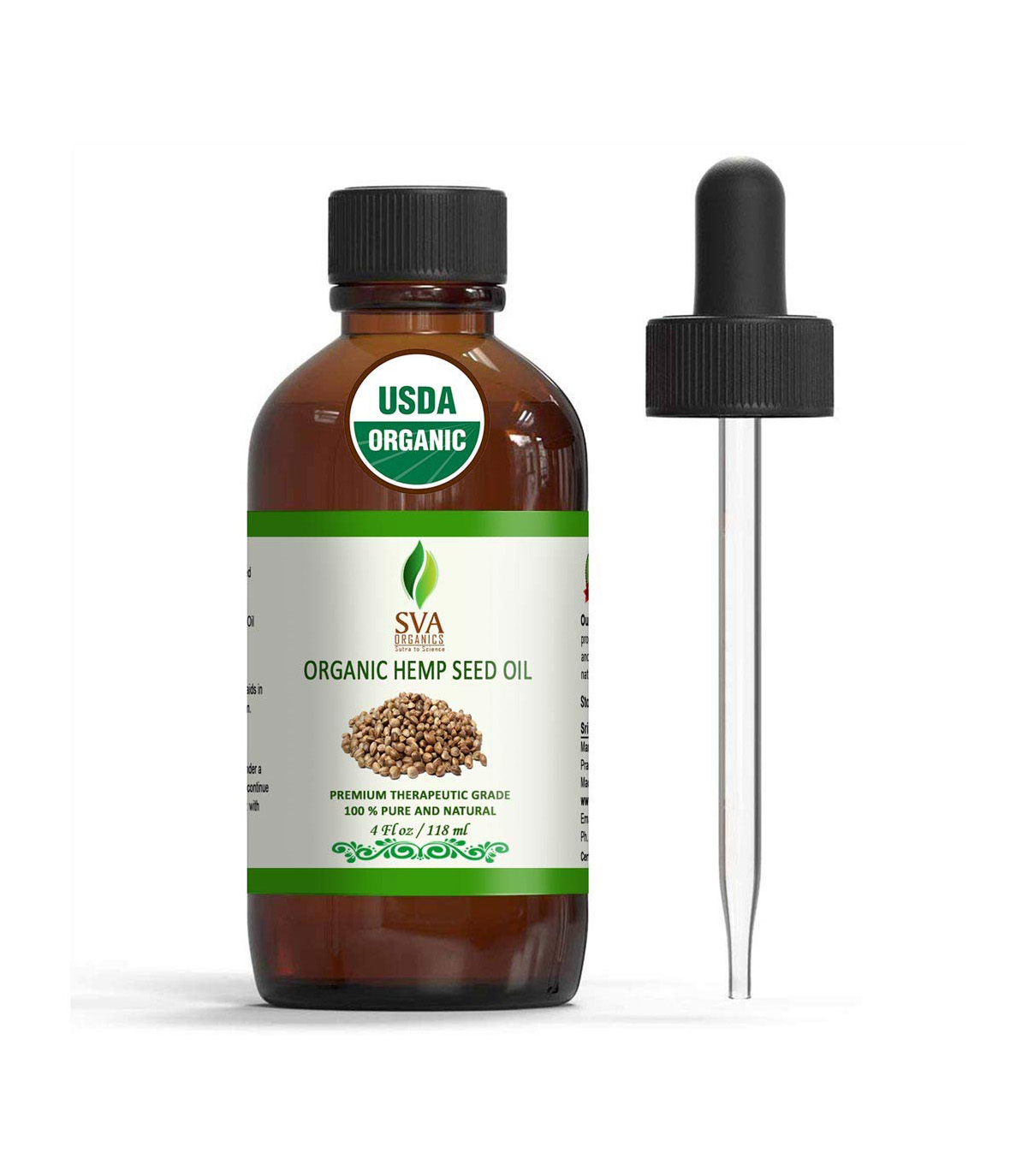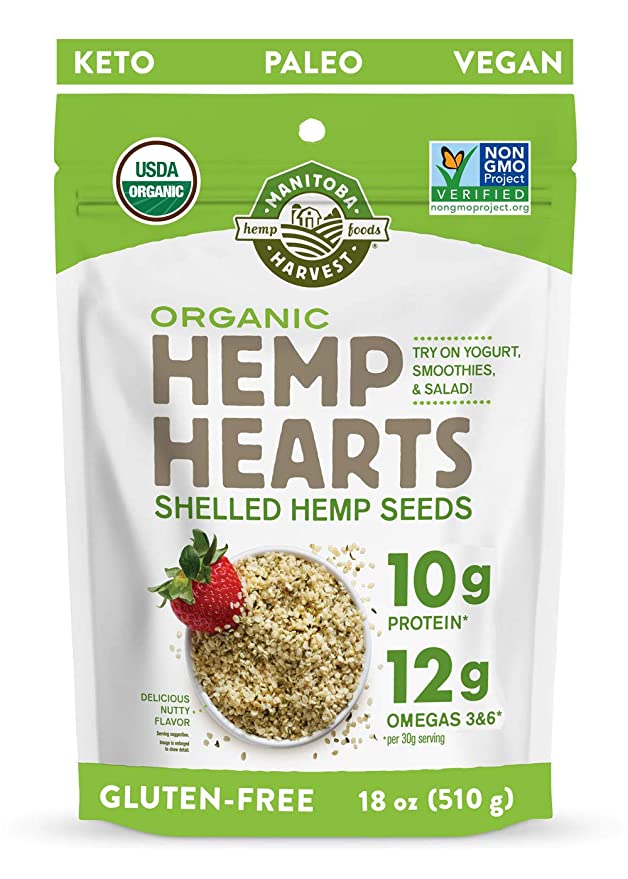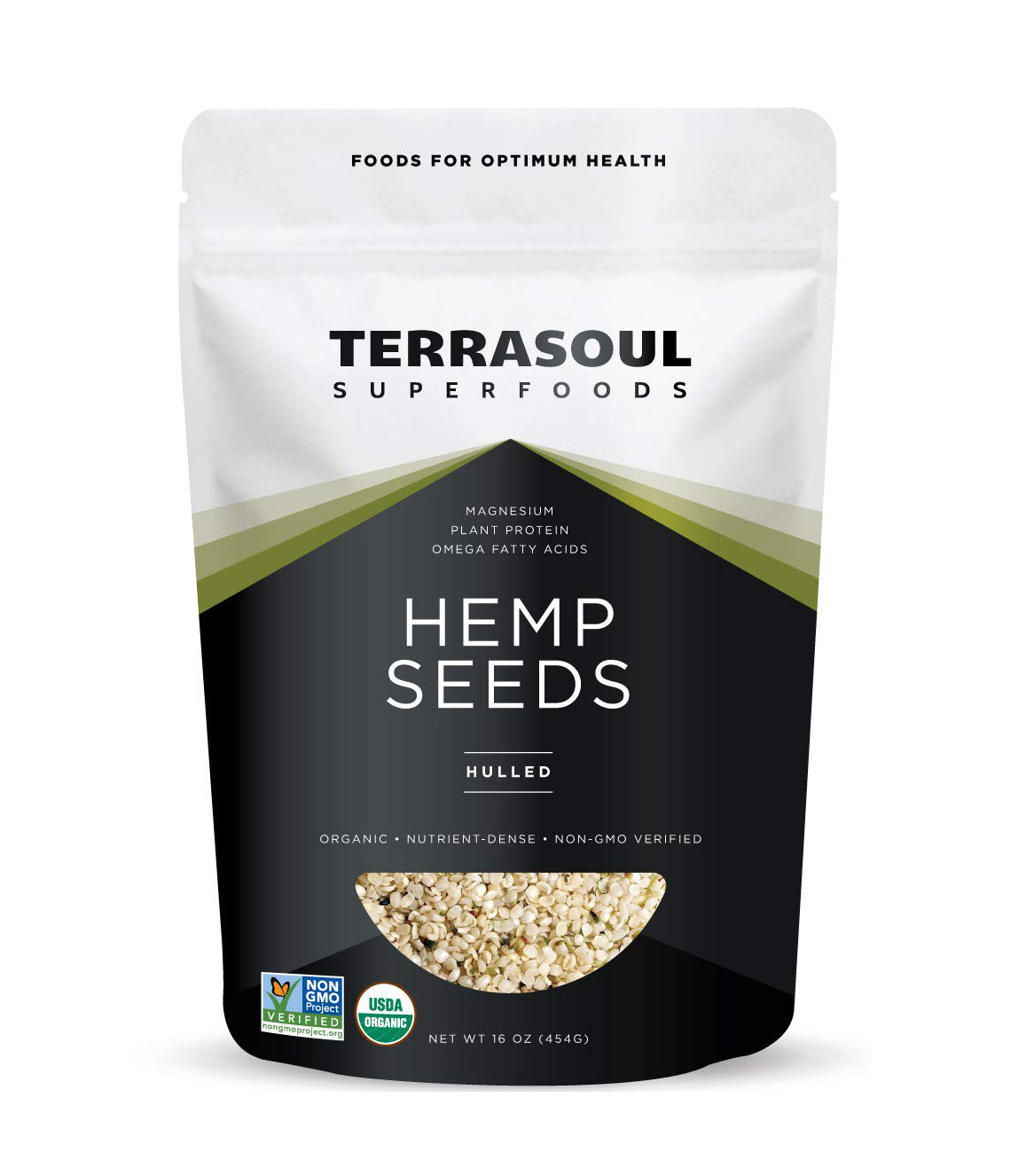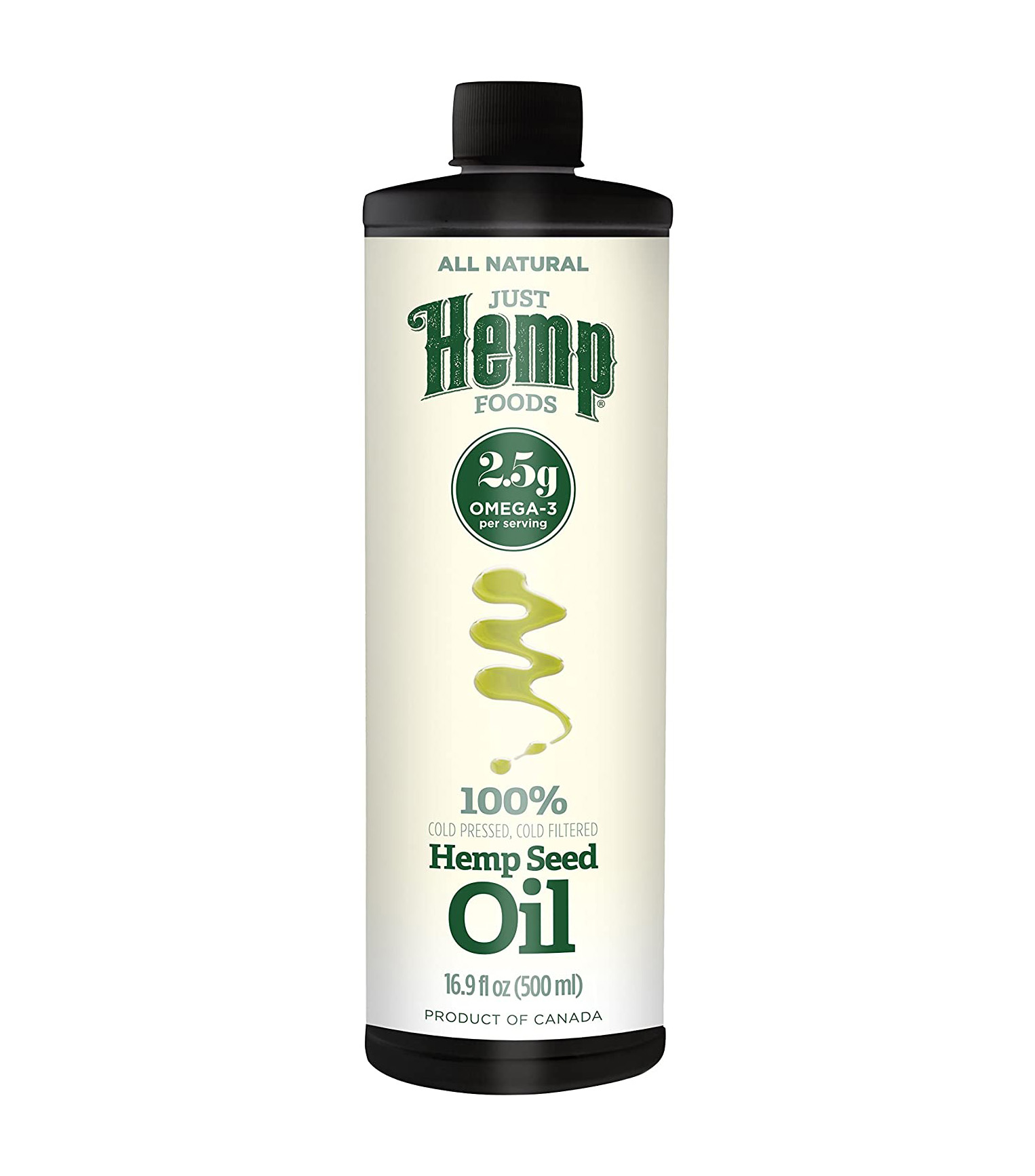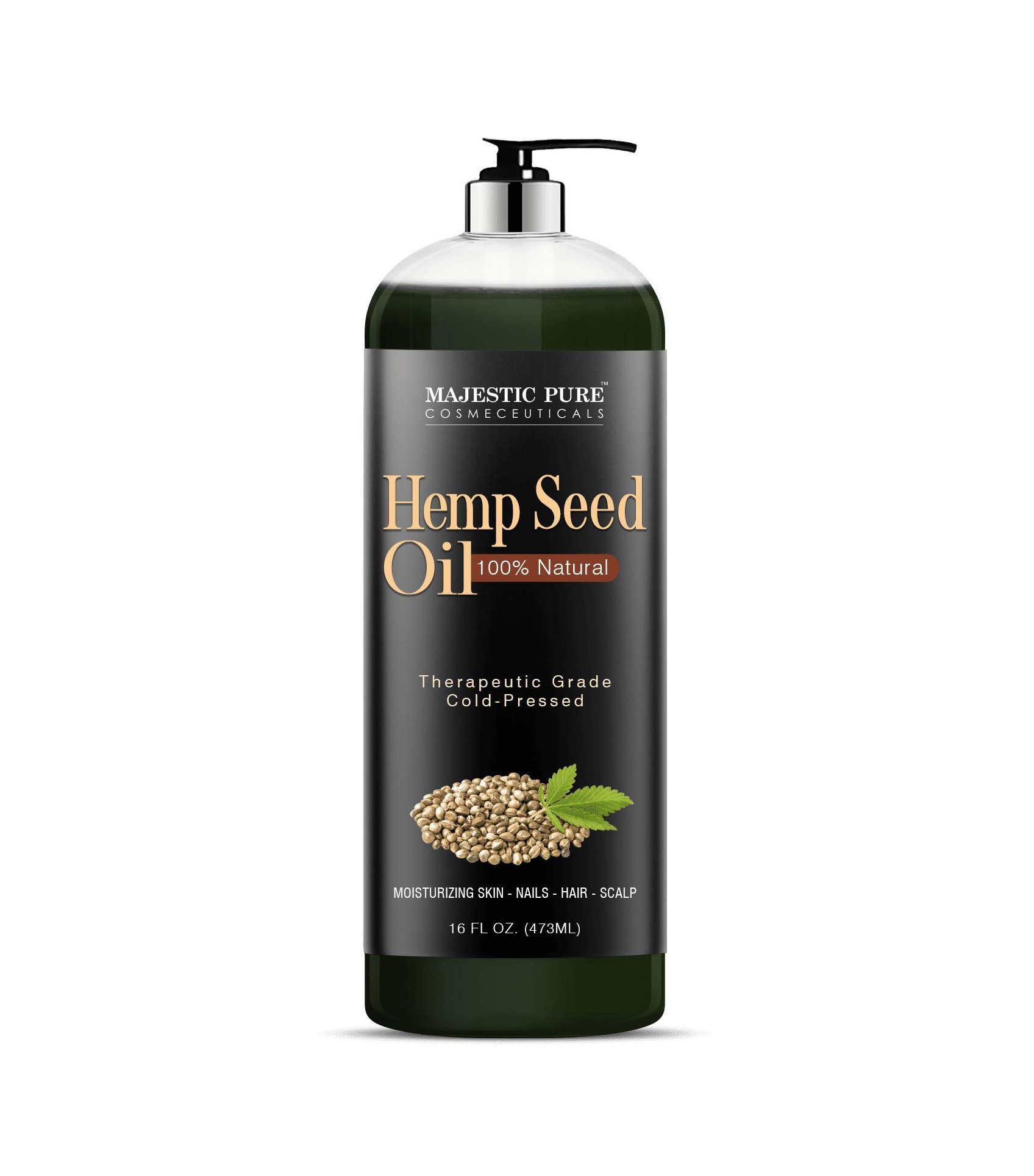Here's Exactly What You Need to Know About Hemp Seed Oil Before You Try It
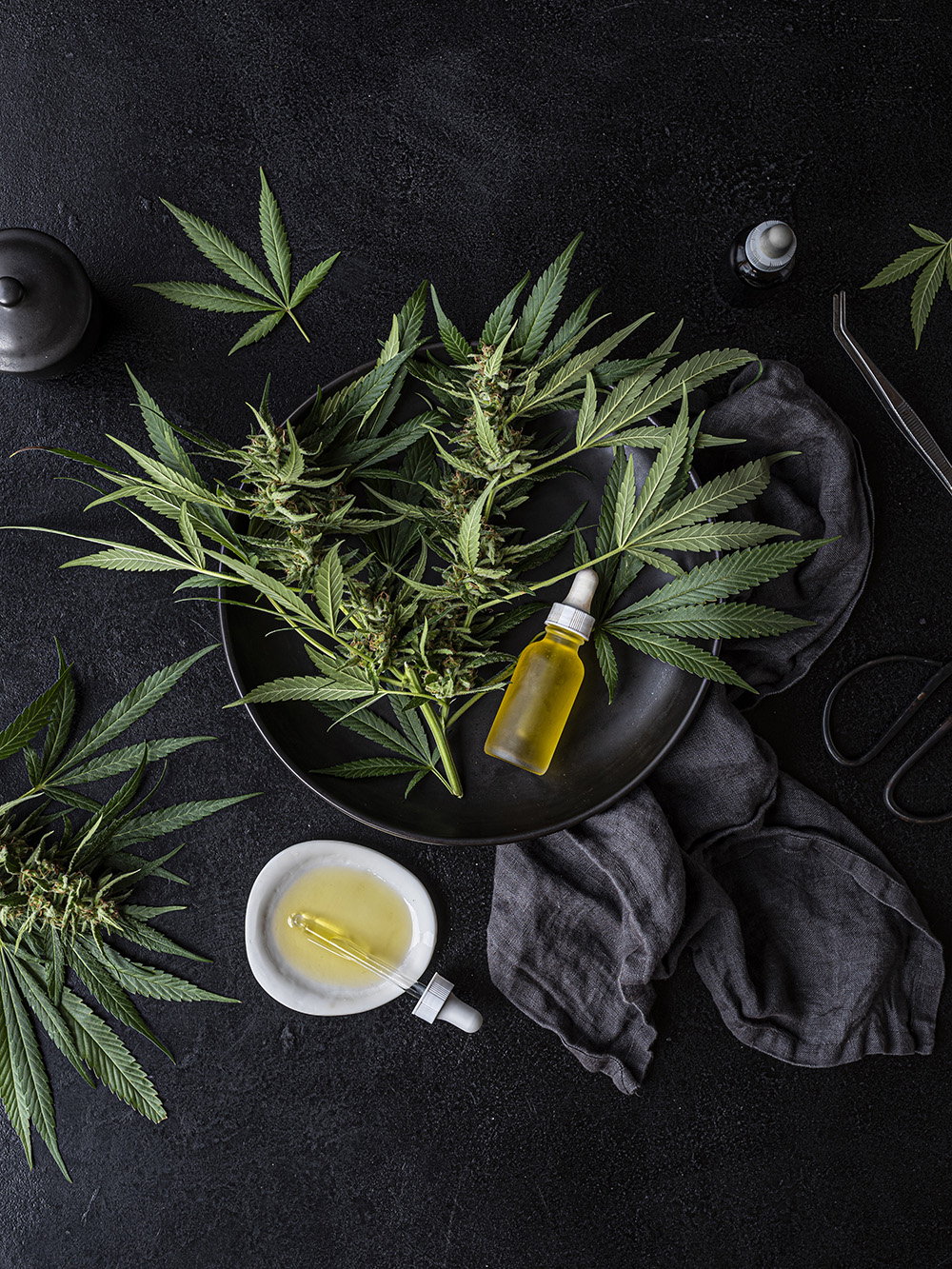
Trends come and go, but as we've seen with a few, there are some that just stick around, because their benefits speak for themselves. Case in point, the increased interest and discussion around hemp seed oil. While it may be known for its close relation to CBD products, it actually doesn't contain any CBD, but does in fact contain many other health benefits. The oil is rich in healthy omega-3 and omega-6 fatty acids, as well as antioxidants vitamin E and beta carotene, making it a dynamic ingredient in skincare. With benefits that range from aiding in bone health to balancing hormones, hemp's popularity proves that there's something to this ancient seed. Read on for our complete guide.
What Is Hemp Seed Oil?
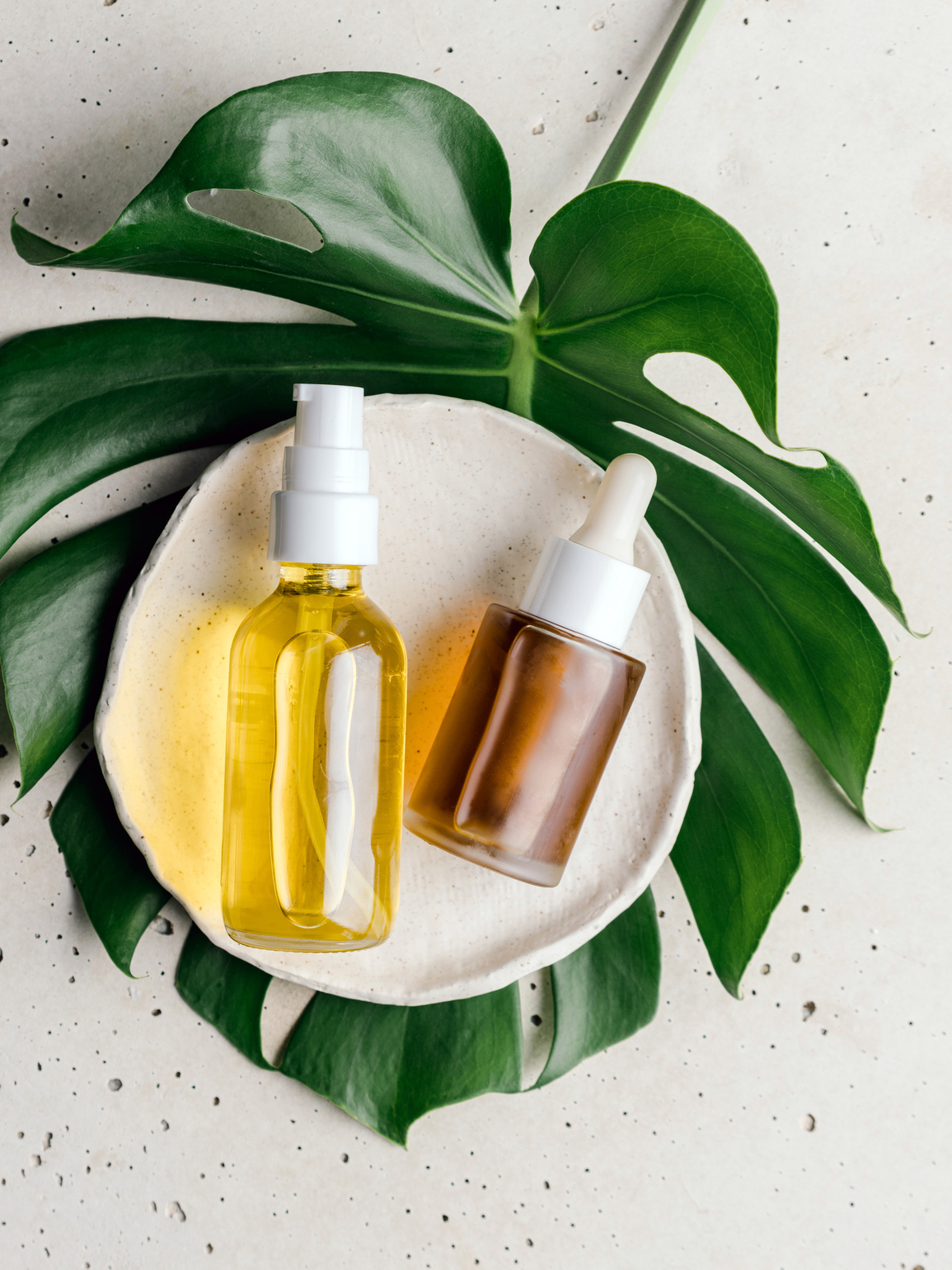
Extracted from the seeds of the hemp plant, hemp seed oil is cold-pressed from the seeds of the cannabis sativa plant—a tall, seedy, and fibrous plant native to Eastern Asia. While it's used in beauty products as an emollient to retain moisture, it's also used in various products such as paper, textiles, and biodegradable plastics. All food-grade hemp seeds can be further processed to make oil, or they're shelled and are often added to smoothies or salads as a superfood.
Like flax seed and sacha inchi oil, hemp has a high amount of omega fatty acid content. Since these oils are heat- and light-sensitive, they're not used for cooking, and rather kept refrigerated to preserve their nutrient content and essential fatty acid structure. Look for high-quality hemp oil that is unrefined, and dark in color—the green pigment in the oil is from the small amount of chlorophyll naturally present in the skins of the seeds.
The hemp plant, seeds, and oil were treasured for generations to treat inflammation, and became popular again in the past few decades. Dr. Andrew Weil published an article titled "Therapeutic Hemp Oil" in 1993, in which he looked at the benefits. "To most people, Cannabis sativa is synonymous with marijuana, but the plant's Latin name means the 'useful hemp.' Species designated sativa (useful) are usually among the most important of all crops. In fact, the utility of hemp is manifold: the plant has provided human beings with fiber, edible seeds, an edible oil, and medicine, not just a notorious mind-altering drug," the introduction states.
What Is the Difference Between Hemp Oil and Hemp Seed Oil?
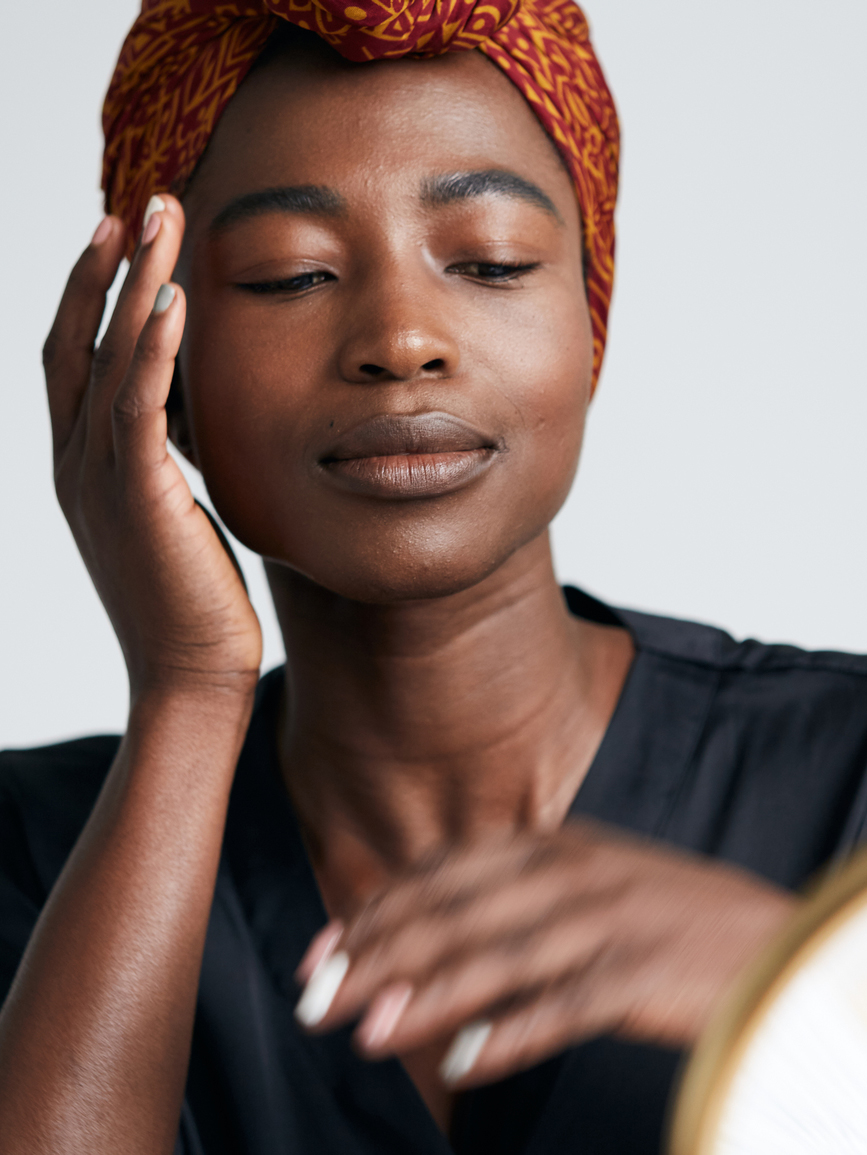
This may seem confusing but hemp oil differs from hemp seed oil. Hemp oil—aka CBD oil—is pressed from the leaves, flowers, stems, and stalks of the plant, which contains a higher concentration of CBD, and can be used to treat everything from epilepsy to anxiety. Hemp seed oil is pressed from the seeds of the plant, which don't contain CBD, but they still have a rich profile of nutrients, fatty acids, and useful bioactive compounds that can also have health benefits.
So, Does Hemp Seed Oil Contain THC?
Often mistaken for cannabis, it does in fact belong to the same family, but they are two different plants and have different compositions. THC, tetrahydrocannabinol, is the psychoactive portion of the cannabis plant that makes you feel "high." While the cannabis plant has high THC levels (up to 28%), the hemp plant's THC concentration does not exceed 0.3%.
The Benefits of Hemp Seeds
It Has a High Amount of Essential Fatty Acids
Well known for its high amount of essential fatty acids, the list of benefits of hemp seed oil goes on and on. These essential nutrients are needed by the body as they are responsible for lowering bad cholesterol and reducing inflammation, as well as aiding in cardiovascular health, enhancing metabolism, and regulating hormone levels and immune response.
Since the seeds are about 80% polyunsaturated fat, one of the highest of any plant, it provides an ideal balanced 3:1 ratio of omega-6 to omega-3 fatty acids. Too much omega-6 in the body can cause inflammation and other related health conditions, as they are present in refined vegetable oils and refined foods.
It's a Rich Source of Protein
Hemp seeds contain almost as much protein as soybeans, almost 25% of their calories, as there is about 9.48 g of protein in about 3 tablespoons of seeds. A complete source of protein, they contain all nine essential amino acids that the body cannot produce on its own, making them a staple in a vegan pantry. They also are a great source of antioxidants, like vitamin E and beta carotene, and minerals such as phosphorus, potassium, sodium, magnesium, sulfur, calcium, iron, and zinc.
It Can Balance Hormones
Some recent studies suggest that the gamma-linoleic acid (GLA) found in hemp seed oil may improve hormone health and reduce symptoms associated with PMS, such as menstrual cramps, reduce breast tenderness, and feelings of irritability and depression. It also contains pain-suppressing elements that can block cramps associated with the menstrual cycle, digestive functions, and bloating. It can also enhance blood flow and can aid in providing oxygen to the tissues that need it, allowing the muscles to smooth out and relax to help increase blood flow.
It Has Skin and Hair Health Benefits
The oil extracted from hemp seeds offer these beneficial fatty acid nutrients in a condensed form, making their way to hair and skin products, as it helps nourish cell membranes and provides antifungal, antibacterial, and antiviral properties. Compounds found in hemp seeds have anti-inflammatory properties that can help minimize or eliminate skin conditions like acne and atopic dermatitis. Since hemp seeds are rich in omega-3, fiber, and other unsaturated fatty acids, hemp seeds can further reduce acne symptoms.
How to Use It for Your Skin and Hair
To Treat Acne
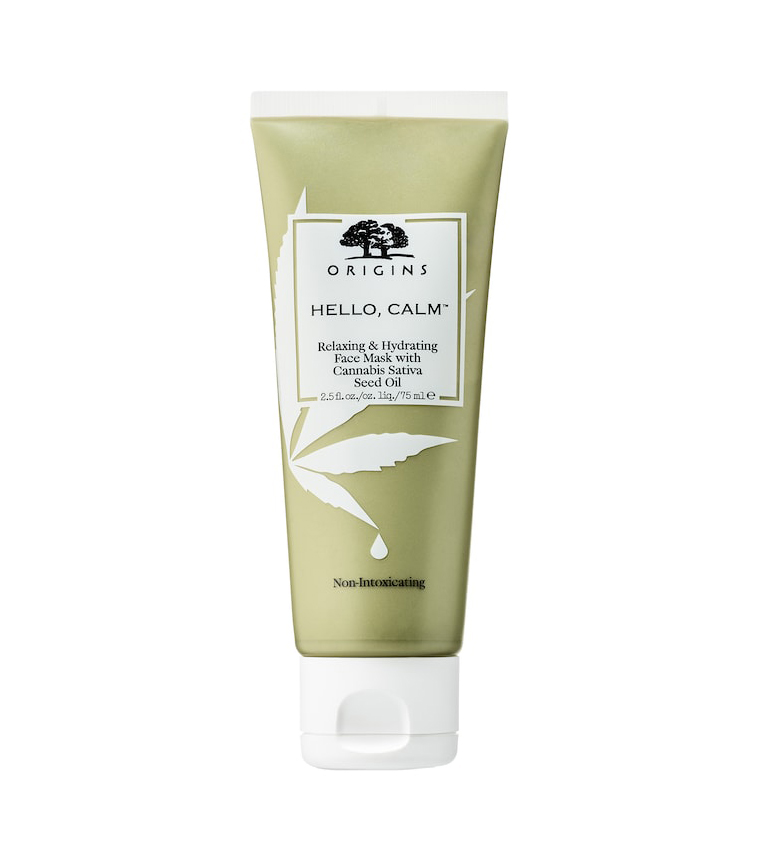
This Origins face mask contains nourishing hemp seed oil with essential omega-6 and omega-3 acids, and addresses skin concerns like dryness and redness. Massage into clean skin, and let the essential oils in the mask hydrate and balance your skin without drying it out.
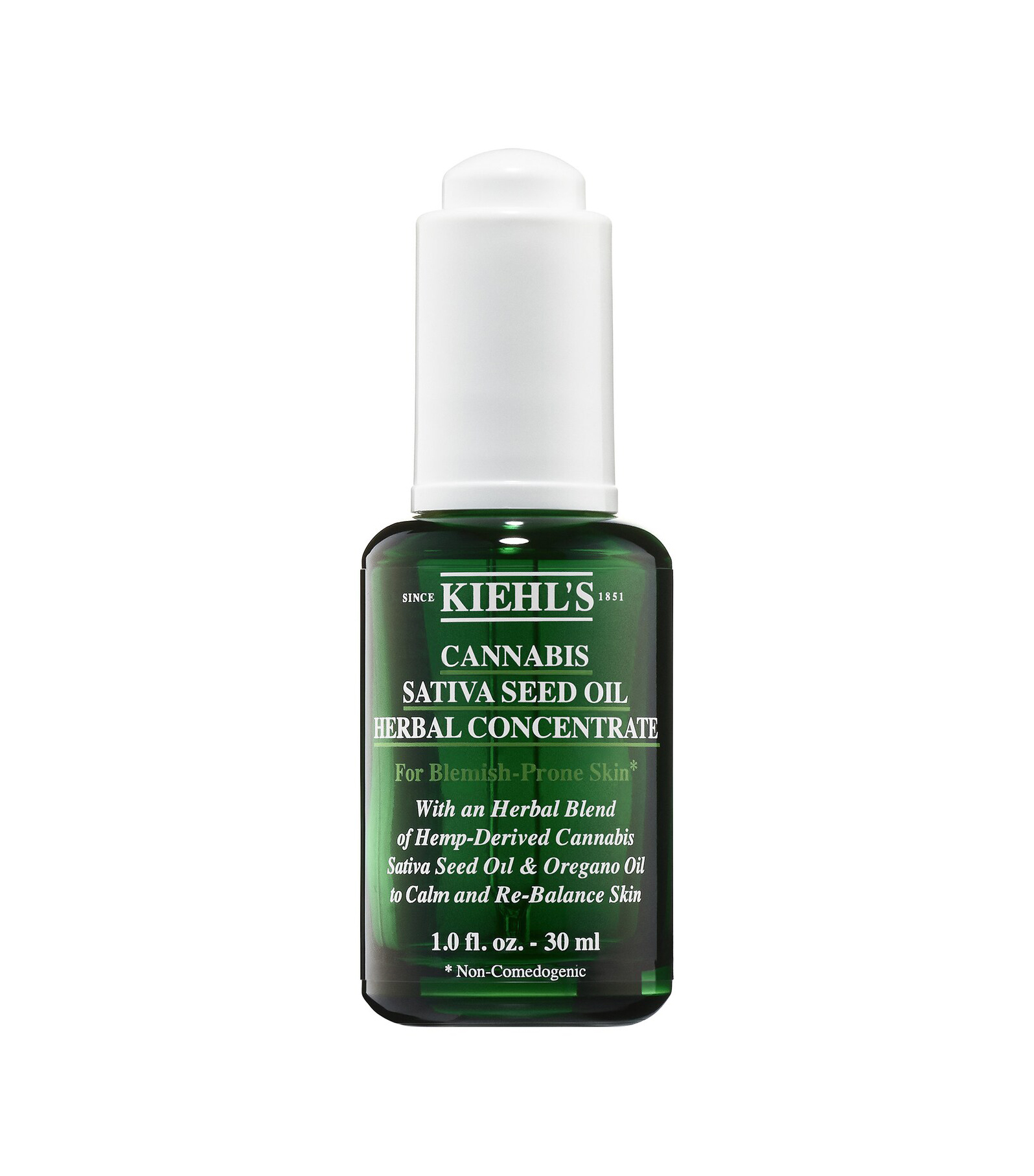
Another winner is this Kiehl's product. It calms skin and reduces redness with the help of green oregano oil. Use it daily to improve the skin's barrier and reduce acne breakouts.
To Help You Glow
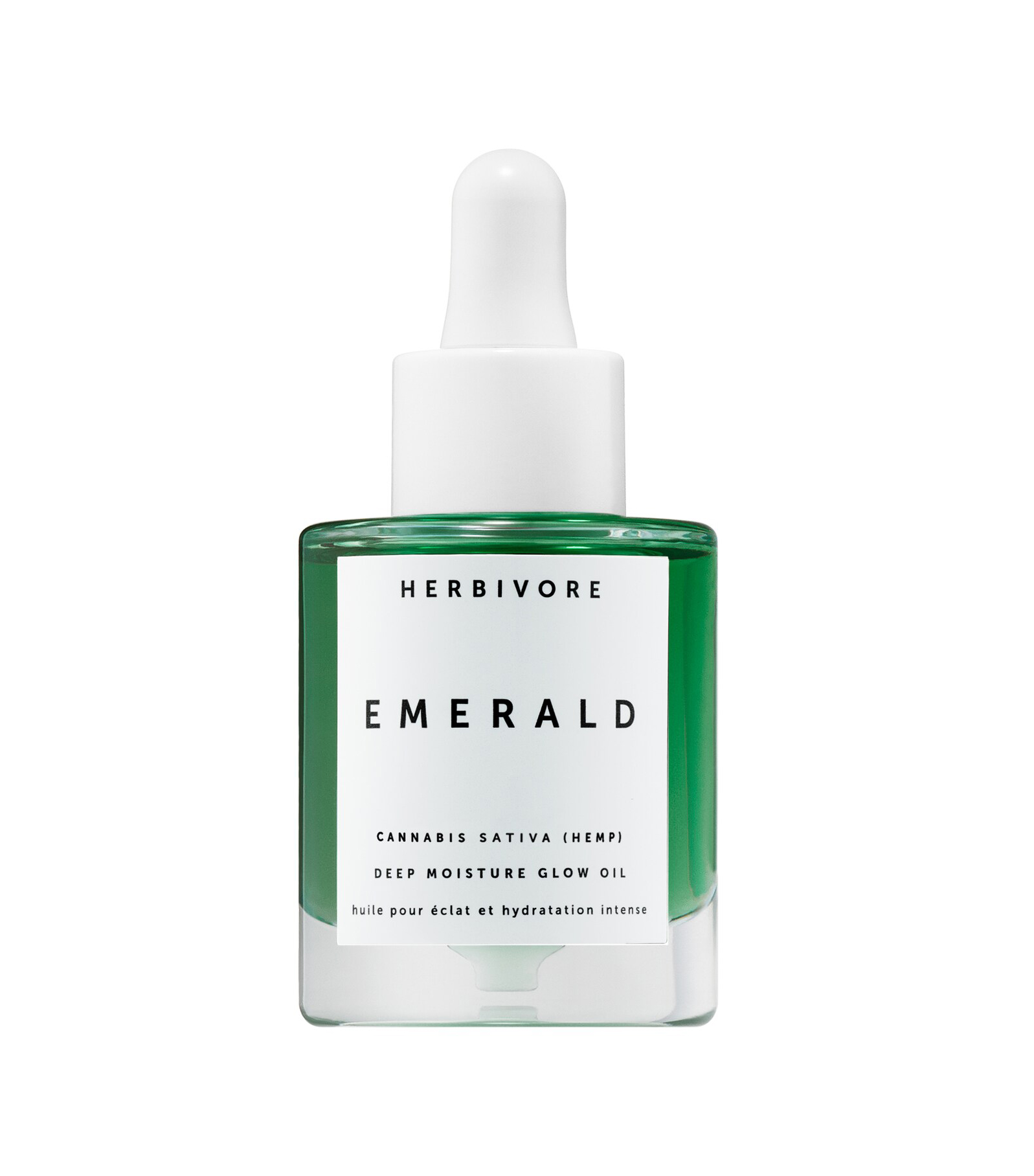
Hemp seed oil is one of the star ingredients in this glow oil. When used alongside adaptogens like ashwagandha and shiitake, your skin is left feeling moisturized and replenished. The best way to apply this facial oil is to warm a few drops in between the palms of your hands and gently pressing into the skin, as the last step in your routine.
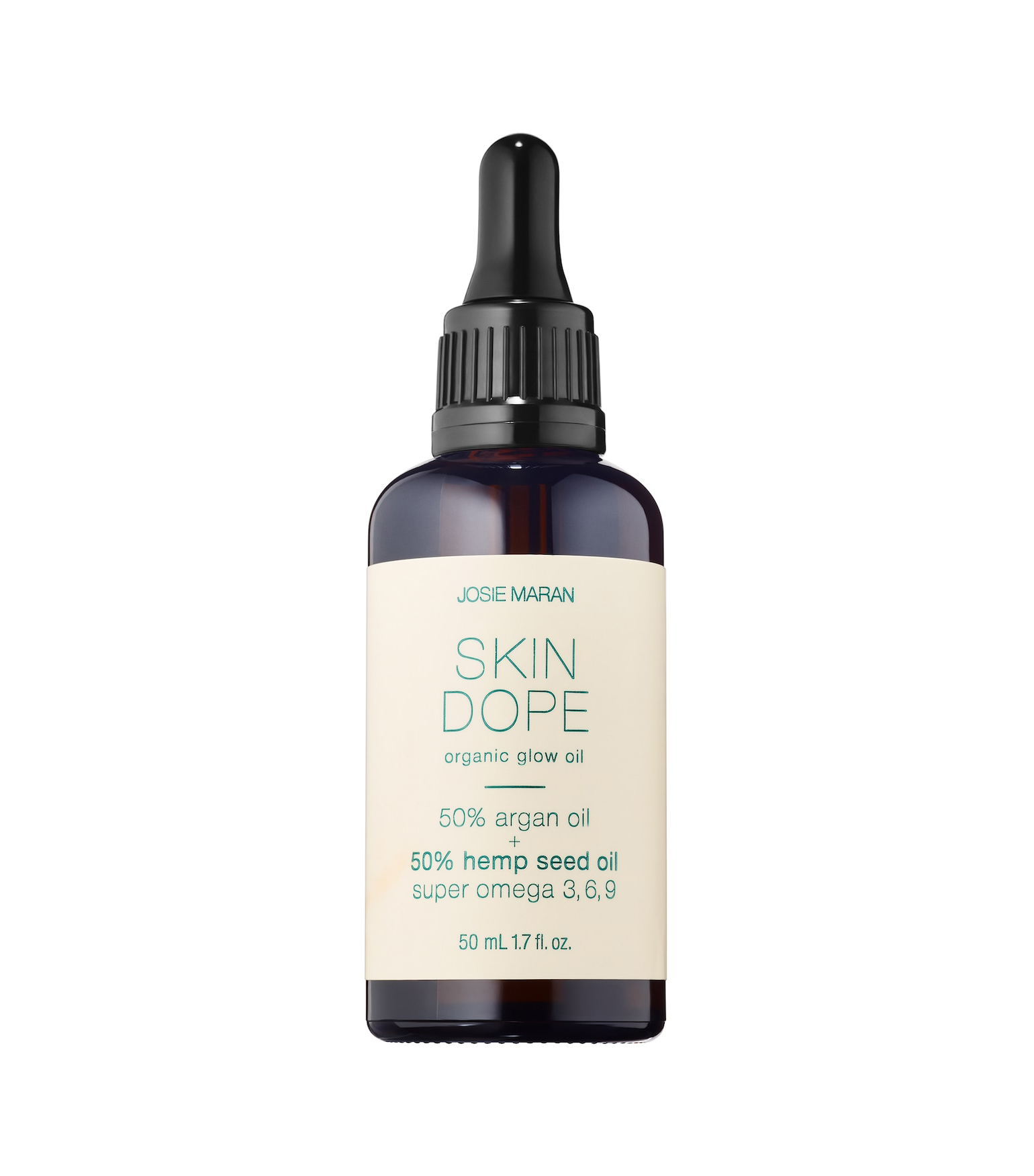
This mild oil helps smooth the first signs of aging for stronger and more resilient skin. Blended with cold-pressed argan oil, the skin-fortifying product deeply moisturizes skin for a youthful, healthy-looking glow.
To Hydrate Dull Skin
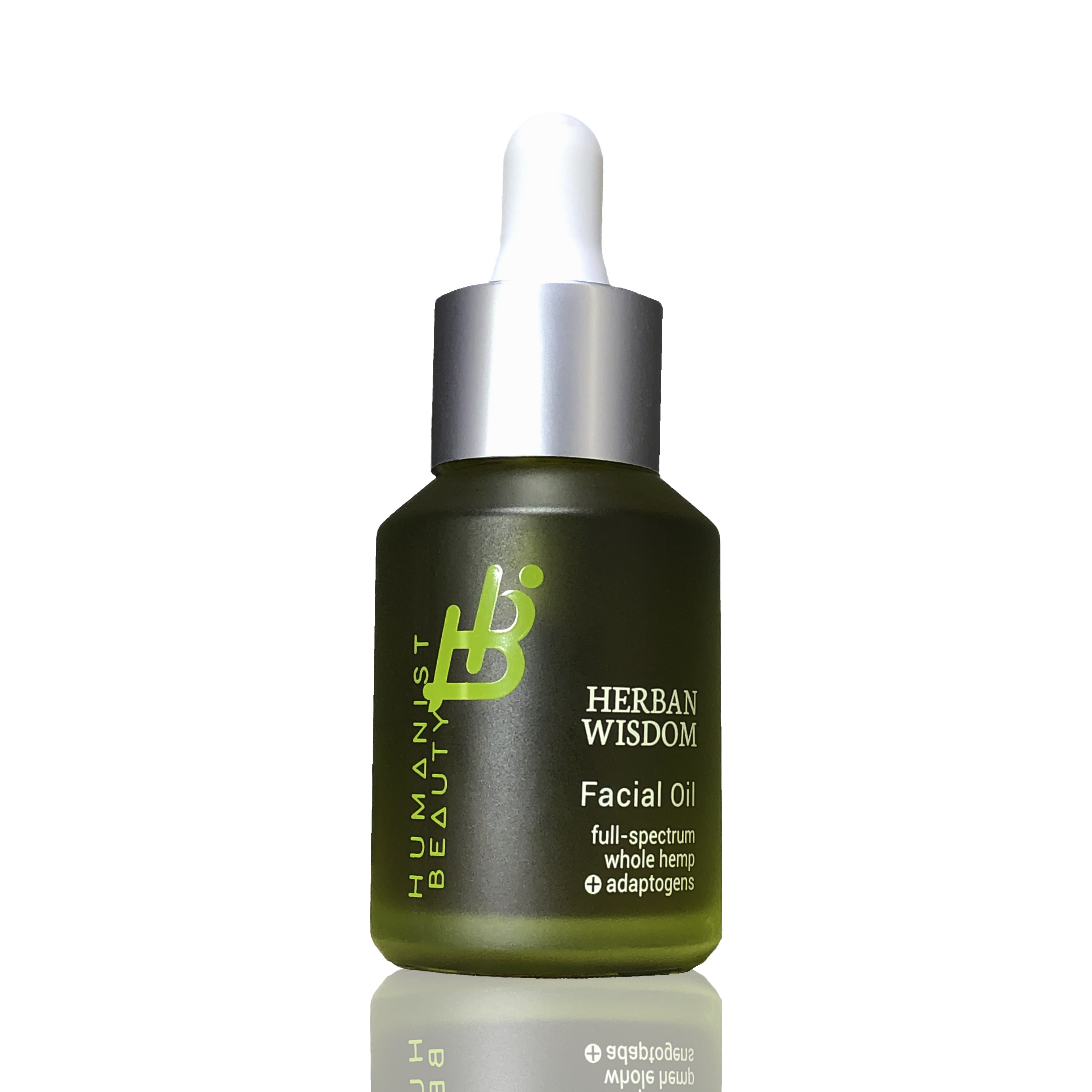
This powerful facial oil serum uses clean plant nutrients rich in antioxidants, adaptogenic, anti-aging, and moisturizing properties. Hemp seed oil, together with a concoction of other precious and therapeutic ingredients such as camellia, black cumin, raspberry, and frankincense oil makes for the most luxurious and soothing serum that could ever exist.
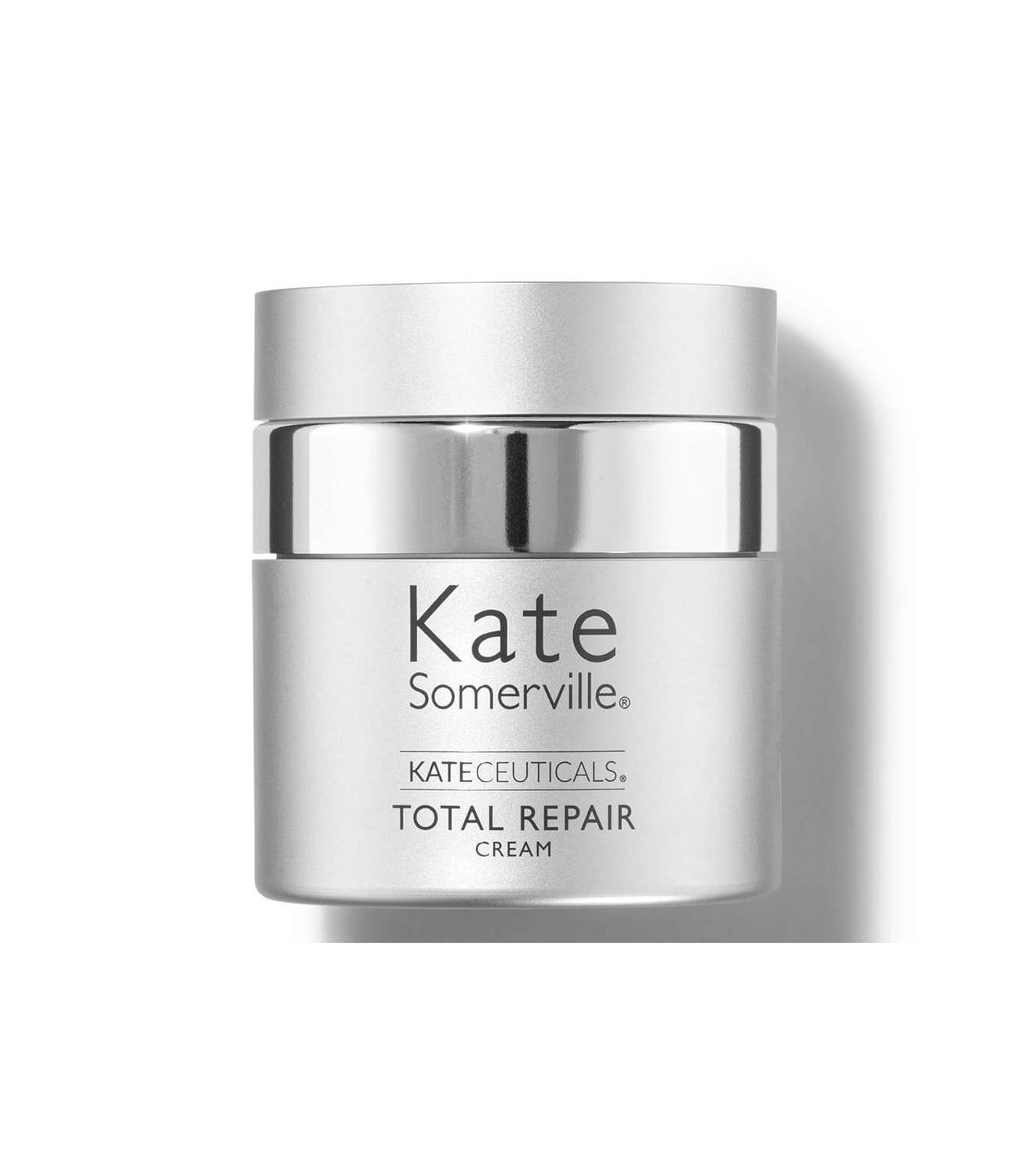
Like everything from the brand, this one delivers. The anti-aging moisturizer improves skin texture, and firmness with the help of hemp, macadamia, and jojoba seed oils, for a healthier skin barrier.
Nourish Everything from Cuticles to Split Ends
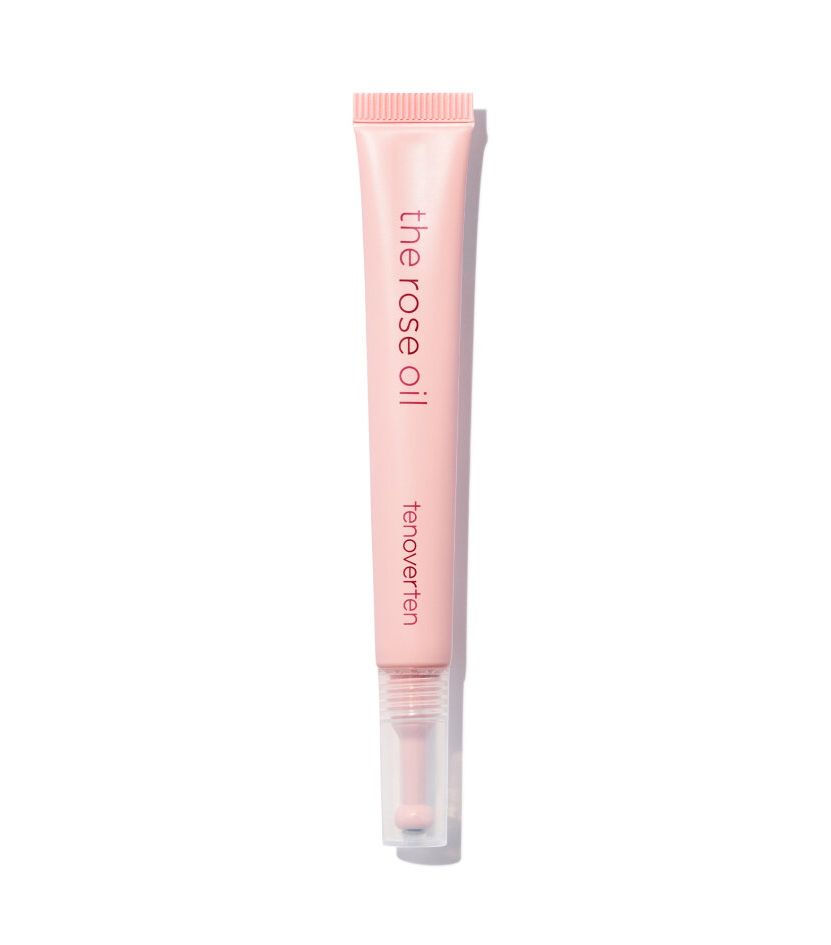
Nails get a little extra TLC from the ultra-hydrating cuticle pen from Tenoverten. Rose flower oil, sweet almond, and hemp seed oils contain essential fatty acids, antioxidants, and B-complex vitamins that heal damaged skin, repair dry, cracked cuticles, and promote nail growth.
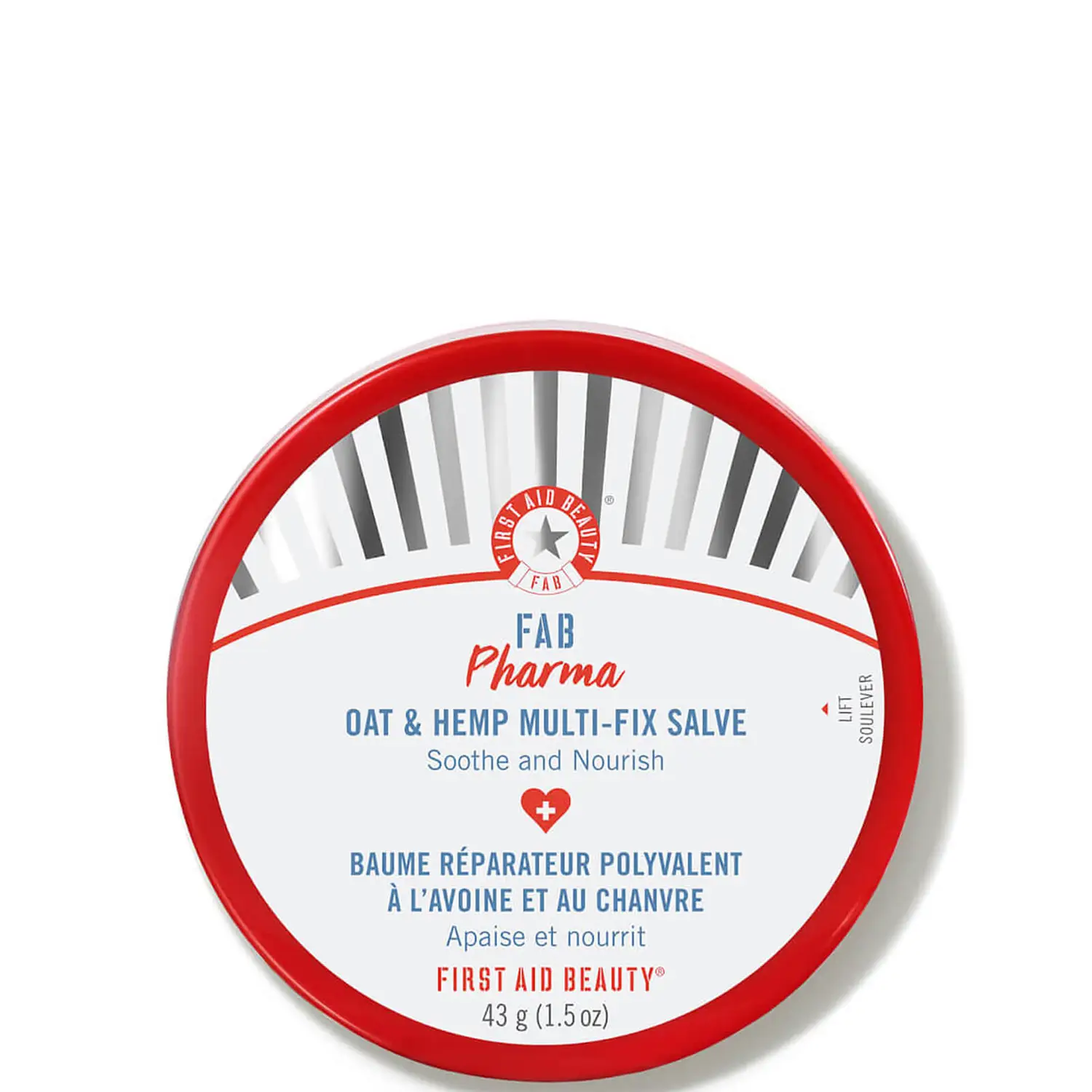
This multi-purpose balm contains a mix of hemp seed oil, colloidal oatmeal, and beeswax that calms and protects skin, no matter how irritated. From lips to elbows to split ends, this do-it-all product shows how versatile hemp seed oil truly is.
Next: These 13 Essential Oils Are the Key to More Youthful-Looking Skin
Disclaimer
This article is provided for informational purposes only and is not intended to be used in the place of advice of your physician or other medical professionals. You should always consult with your doctor or healthcare provider first with any health-related questions.
